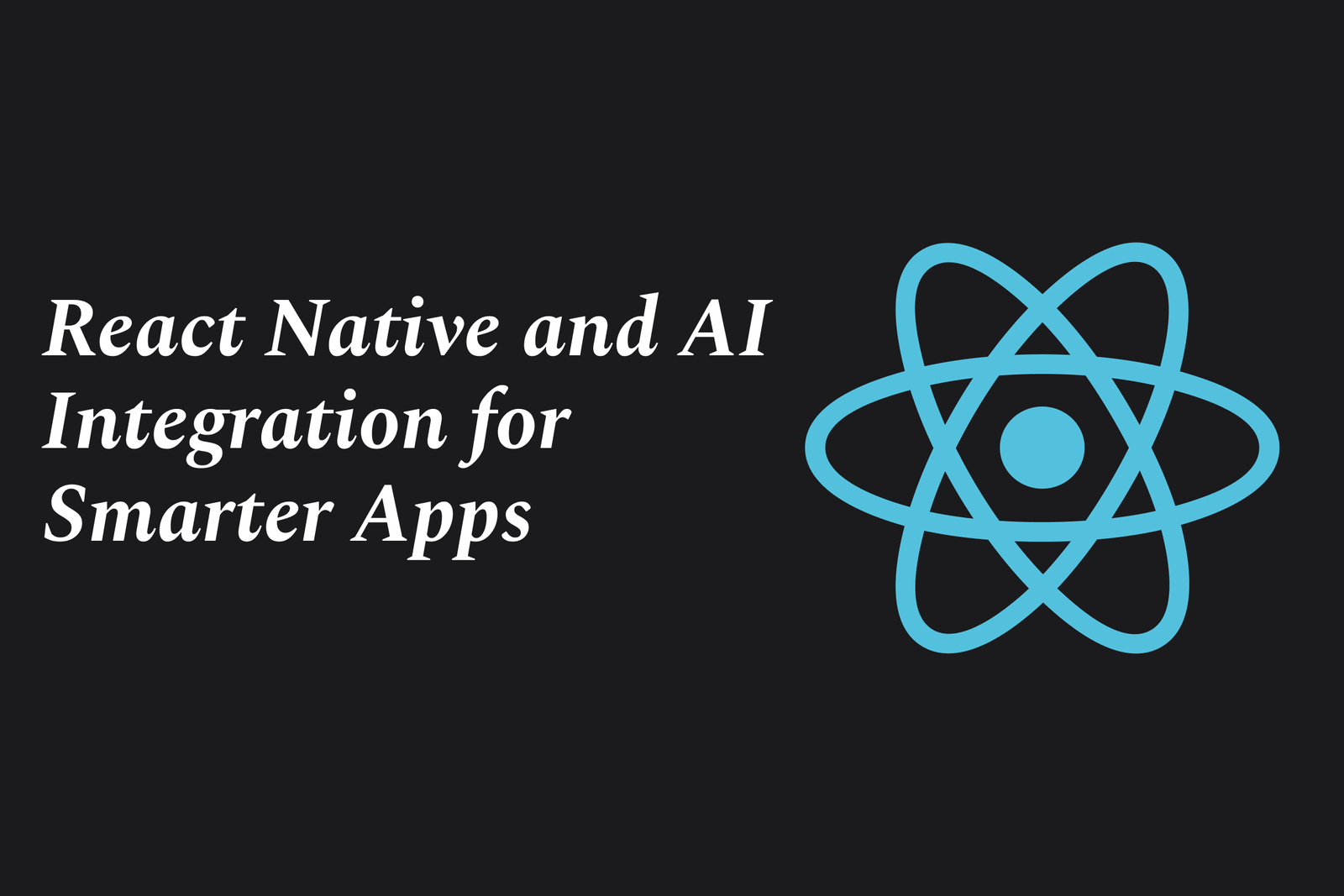React Native and AI Integration for Smarter Apps
React Native enables cross-platform mobile app development with native performance, while AI integration adds intelligence through features like image recognition and natural language processing. Together, they create smarter, more interactive, and personalized apps efficiently.
React Native and AI Integration for Smarter Apps
1 ) Introduction to React Native
React Native is a powerful JavaScript framework developed by Meta in 2015, enabling developers to build truly native mobile applications for Android, iOS, and other platforms using React paradigms. It allows code written in JavaScript to be rendered with native platform components like View, Text, and Image which directly map to the native UI building blocks. This creates apps that feel native and perform efficiently with smooth animations as the layout calculations happen on a separate thread.
2 ) Advantages of Using React Native Frameworks like Expo
For most developers, using a React Native Framework such as Expo is recommended. Expo provides a comprehensive toolbox including file based routing, universal libraries, and plugin architecture enabling native code modifications without managing native files manually. These frameworks streamline app development by offering well maintained APIs, native modules, and developer tooling like Expo Go and expo dev client, reducing development complexity and speeding productivity.
3 ) React Native’s Community and Ecosystem
React Native has grown into a robust, community driven project supported by many companies, including Meta, Microsoft, and Callstack. The ecosystem extends beyond Android and iOS to platforms like Windows, macOS, and Web through projects such as React Native Windows and React Native Web. Thousands of popular apps, including Facebook, Instagram, and Discord, utilize React Native demonstrating its production readiness and versatility.
4 ) Integration of AI for Smarter Applications
Although not detailed explicitly in the source text, combining React Native with AI technologies (such as OpenAI models, machine learning services, or AI driven features) enables developers to create intelligent, adaptive, and context aware applications. AI integration can enhance user experiences through features like natural language processing, image recognition, predictive analytics, and personalized content delivery, making apps smarter and more responsive to user needs.
5 ) Conclusion: Building Smarter Apps
React Native, supported by frameworks like Expo and enriched by AI capabilities, empowers developers to build sophisticated, cross platform apps efficiently. It leverages native performance and UI benefits while enabling advanced AI integrations, paving the way for the next generation of smart, intuitive, and high performing mobile applications.
https://justacademy.in/news-detail/android-apps-leveraging-cloud-computing
https://justacademy.in/news-detail/react-native?s-latest-security-updates-keep-apps-safer-than-ever
https://justacademy.in/news-detail/flutter-test-lab-new-features
https://justacademy.in/news-detail/flutter-for-startups:-quick-mvp-building-guide
https://justacademy.in/news-detail/flutter-web-performance-benchmarks
Related Posts
Java supports GDPR and data privacy by enabling secure data handling through encryption, controlled access, and precise data management. It allows developers to minimize PII exposure, ensure data confidentiality, and design workflows that comply with data protection regulations effectively.
Java code quality tools have evolved to include advanced static analysis, integrated security checks, and AI-powered code reviews. These updates help developers detect bugs, enforce coding standards, and enhance security, streamlining the development process and improving overall code reliability.
Java remains a cornerstone in big tech companies, evolving with modern features like records, pattern matching, and virtual threads. Its robust ecosystem, enhanced performance, and growing AI integrations keep it vital for both legacy systems and innovative new projects.
Java and CI/CD pipeline optimizations streamline Java application development by automating builds, tests, and deployments. They improve efficiency through parallelization, caching, and secure secrets management, enabling faster feedback loops and more reliable, scalable software delivery.
Java supports modern cryptography standards through its flexible Java Cryptography Architecture (JCA), enabling integration of advanced algorithms like AES, EdDSA, and post-quantum tools. Libraries like Bouncy Castle offer FIPS-certified, hardware-accelerated implementations for secure development.
Java 23 enhances record patterns by enabling concise, direct destructuring of record components within pattern matching, simplifying type checks and data extraction. This improvement boosts code readability and expressiveness by reducing boilerplate in handling immutable data classes.
Java remains a top choice for mobile app backends, powering scalable, secure, and high-performance server-side solutions. Latest trends include cloud-native microservices, reactive programming, and enhanced JVM optimizations, enabling efficient, flexible, and robust mobile backend development.
Java SE 24 and LTS Java SE 21 offer enhanced features and performance, while Apache Spark 4.0.0 introduces Scala 2.13 support and advanced ML and SQL capabilities. Together, they empower developers to build scalable, high-performance data applications with modern tools.
JUnit 5 modernizes Java testing with a modular architecture, improved assertions, and seamless Java 8+ support. Beyond JUnit, tools like Mockito and AssertJ enhance mocking and assertions, creating a powerful, flexible ecosystem for writing clean, efficient Java unit tests.
Java plays a pivotal role in cloud automation tools by providing a robust, platform-independent language used to build scalable automation frameworks like Jenkins and Selenium, enabling efficient CI/CD pipelines, testing, and orchestration across diverse cloud environments.










